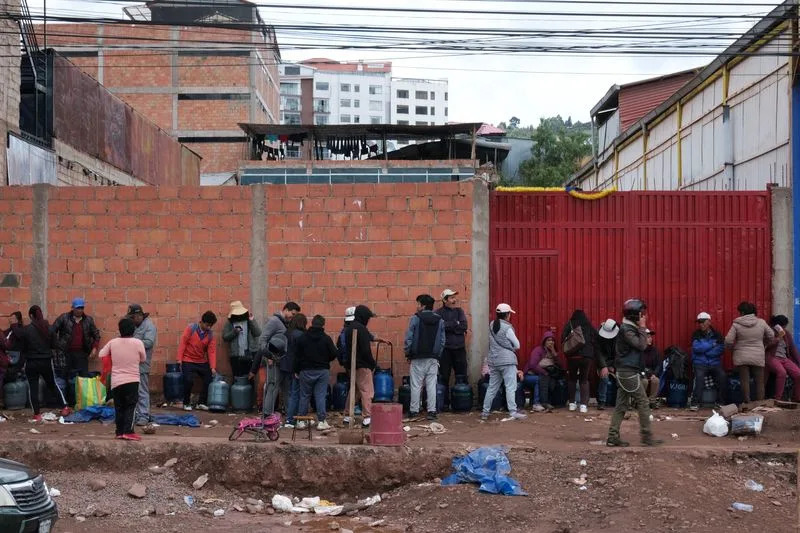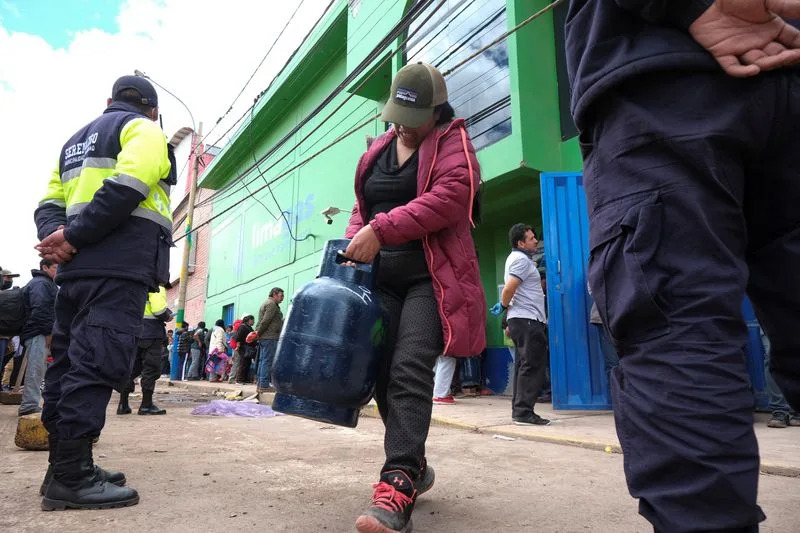Alexander Villegas
Tue, February 7, 2023


People line up to buy domestic gas after weeks of anti-government protests impacting goods, transport, business and the operation of some key mines, in Cuzco
By Alexander Villegas
JULIACA, PERU (Reuters) - Protests and roadblocks in Peru's southern Andes have hardened after Congress failed to bring forward elections, jamming up much of the region, which is rich in copper and historic Incan sites like Machu Picchu.
Congress has rejected multiple bills for early elections, a key demand by protesters, including shelving a proposal by President Dina Boluarte on Friday.
Protests have snarled the Andean nation, with clashes between demonstrators and security forces leaving 48 dead. It is the worst violence in Peru in two decades, and threatens to destabilize one of region's most reliable economies.
Reuters spoke to dozens of protesters across multiple blockades in southern Peru on Monday, some occupied by a handful of protesters while others had dozens, who see no solution besides continued protests after Congress' repeated failure to bring elections forward to 2023.
Congress is unusually fragmented. It has 13 voting blocs, caused in part by rules that allow a group of five lawmakers to easily create a new one. The two largest parties have just 24 and 15 seats respectively, making it hard to reach majorities needed for legislation.
Adelma Quispe, a protestor in the southern town of Ayavire, said protests would have calmed down if there had been an agreement on snap elections.
"But not anymore," Quispe said, standing behind a blockade of rocks, Peruvian flags and more 20 protesters at the exit of Ayavire.
"So now, we have to fight until the last person, we have to fight until the very last one," Quispe said, adding that the blockade won't stop until Boluarte resigns, new elections are called and a referendum is held for a new constitution.
Peru, the world's second-largest copper producer, has been hit by social unrest since the Dec. 7 ouster of leftist President Pedro Castillo.
Dozens of protesters have been killed in clashes with security forces, mostly in the nation's rural south, a poor region despite the mineral wealth.
"We want to denounce that so many of our brothers have been killed," said Leonardo Zamata, a protester blocking the entrance to Humachiri, a town near the southern city of Juliaca. “How could this not hurt us, the most humble people?"
Zamata added that his town wouldn't lift the blockade until there were new elections. Zamata, Quispe and others say they have collected money to send people to protest in Lima, but are dedicated to maintaining blockades in their towns.
Throughout the region, protesters said they can survive on local crops and livestock, and outlast the capital until their demands are met.
"(Boluarte) has to resign. Until then, we'll keep fighting," Quispe said. "The Peruvian people will never get tired."
(Reporting by Alexander Villegas. Editing by Gerry Doyle)
No comments:
Post a Comment